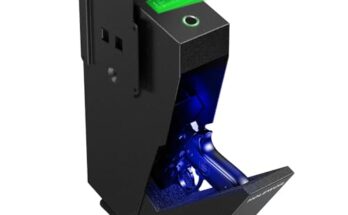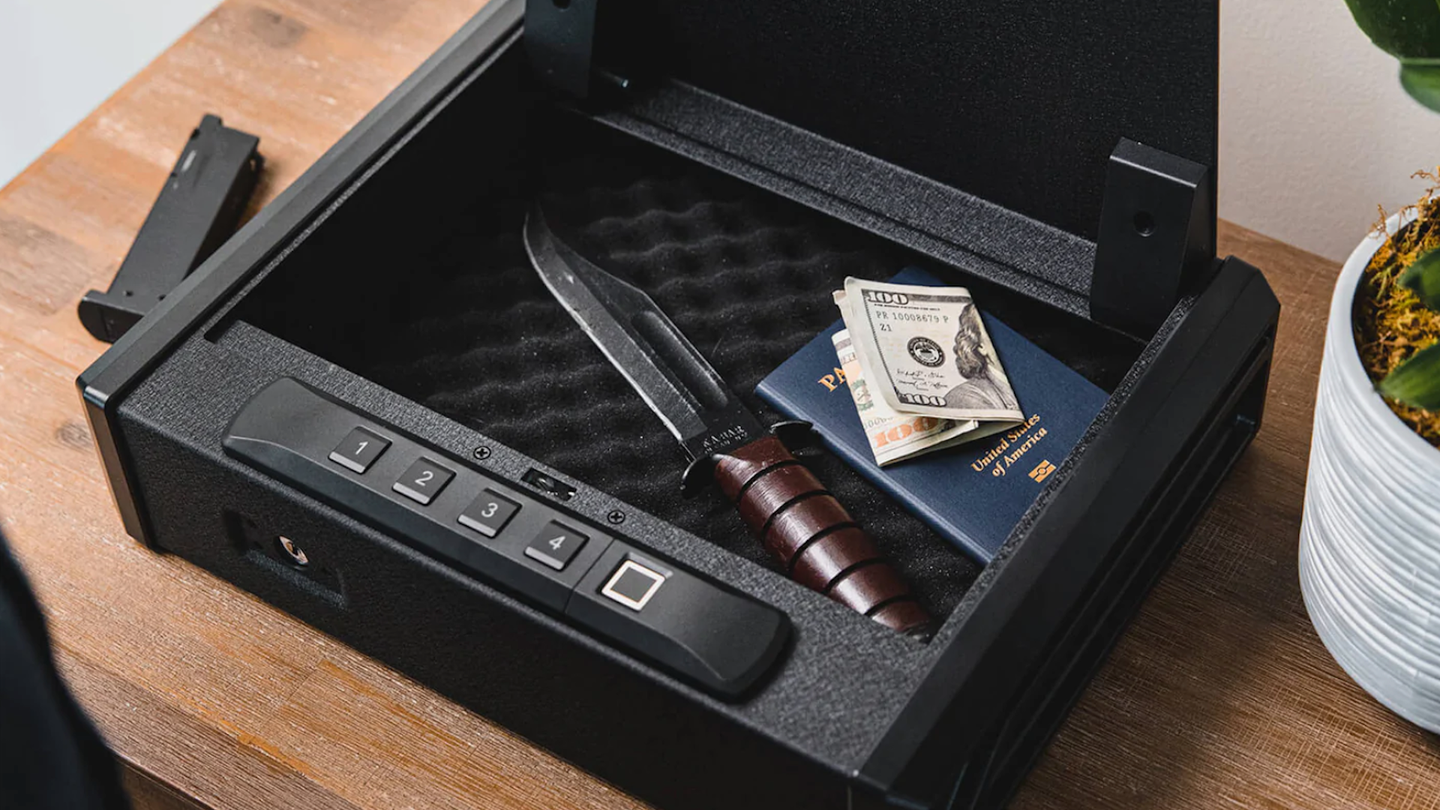You should clean your gun after each use and at least once a month if it’s not used regularly. Regular cleaning maintains its functionality and safety.
Owning a firearm comes with the crucial responsibility of upkeep, and proper maintenance is essential in ensuring its reliable performance and longevity. A well-maintained gun operates efficiently and prevents the build-up of residues that can affect accuracy and functionality. Dirt, debris, and the remnants of fired ammunition can not only impair the gun’s mechanics but also lead to dangerous malfunctions.
This makes routine cleaning a non-negotiable task for every gun owner. By fostering these habits, you not only secure your safety but also uphold the value and condition of your firearm. A clean gun is synonymous with a dependable tool, ready to perform at its best whenever the need arises.

Credit: www.pelican.com
The Importance Of Regular Gun Maintenance
The Importance of Regular Gun Maintenance cannot be overstressed. To ensure optimal performance and safety, gun owners must adhere to a strict cleaning schedule. A well-maintained firearm is reliable, accurate, and ready for use whenever necessary. Ignoring this critical aspect of gun ownership can lead to malfunctions, inaccuracies, and potentially dangerous situations.
Keeping Your Gun Functioning Properly
Clean firearms are more reliable. Dirt, residue, and old lubricants can cause jams and misfires. A consistent cleaning routine prevents buildup and maintains functionality. Consider the following points:
- Inspect and clean after each use.
- Look for signs of wear or damage.
- Always handle disassembly and reassembly with care.
- Use the right tools and solvents.
Safety Implications Of Neglected Firearms
Neglecting gun maintenance leads to safety risks. A blocked barrel or a faulty firing pin can cause serious injury. Regular checks ensure safe operation and extend the lifespan of your firearm. Adhere to these safety measures:
| Cleaning Frequency | Safety Checkpoints |
|---|---|
| After each use | Check barrel and chamber for obstructions |
| Monthly | Test the trigger and safety mechanisms |
| Annually | Professional inspection |
Remember, regular maintenance infuses confidence in handling your firearm and ensures its longevity and dependability.

Credit: www.usatoday.com
Factors Influencing Cleaning Frequency
Cleaning a gun maintains its performance and safety. Several factors determine the cleaning frequency. Understanding these factors is crucial for responsible gun ownership.
Type Of Gun Usage
Guns serve different purposes. This varies the cleaning schedule. Competitive shooters may clean more often than occasional users. Let’s look into this.
- Competition Firearms: Require cleaning after each use.
- Hunting Rifles: Need cleaning after every hunting trip.
- Personal Defense Guns: Clean every few months, even if not fired.
Environmental Exposure
A gun’s environment affects its cleanliness. Humid or salty air can cause rust. Dry, dusty conditions can lead to debris buildup. Keep these points in mind:
| Environment | Maintenance Required |
|---|---|
| High Humidity: | Clean and oil to prevent rust. |
| Sandy or Dusty: | Clean frequently to prevent malfunction. |
| Cold Climates: | Minimum moisture exposure reduces cleaning needs. |
Ammunition Types
Different ammunition leads to varied residue inside the gun. This impacts cleanliness.
- Lead Rounds: Lead residue demands regular cleaning.
- Jacketed Bullets: Fewer deposits, less frequent cleaning.
Cleaning After Use: A Rule Of Thumb
Maintaining a gun includes cleaning it regularly. A clean gun ensures safety and better performance. There’s a basic rule every gun owner should follow—clean your gun after every use.
Immediate Care Post-shooting
Once you’ve finished shooting, it’s time for some quick action. Wipe off fingerprints and remove any debris. This immediate step prevents corrosion and damage.
Here are the basics:
- Unload your gun completely.
- Use a bore brush for the barrel.
- Apply a clean patch until it comes out clean.
- Oil the moving parts lightly.
The Case For Deep Cleaning
Over time, guns accumulate residue that can’t be removed with quick wipes. That’s when deep cleaning comes in.
These are the times for a full clean:
| Activity | Deep Clean Frequency |
|---|---|
| Regular Use | Every few months |
| Infrequent Use | At least twice a year |
| Harsh Conditions | After each exposure |
Take apart your firearm following the manufacturer’s guidelines. Clean each part with the right tools and solvents. Always ensure proper lubrication and reassembly.
Remember, a maintained gun is a reliable one. Stick to these rules and your firearm will be ready and safe for every shot!
Seasonal And Long-term Storage Considerations
Proper care extends a gun’s lifespan and ensures safety. Seasonal sportspeople and long-term collectors alike must consider how they store their firearms. Cleaning and prepping your gun for storage defends against rust and damage. Periodic checks keep it in prime condition. Below, discover the essentials of gun storage care.
Preparing For Storage
Start with a thorough cleaning. Every gun needs this before storage. Crud and oils can cause damage over time. Use a cleaning kit specific for your gun type. Follow these simple steps:
- Unload the firearm. Safety first.
- Clean each part with proper solvents.
- Lubricate moving parts to prevent rust.
- Make sure the gun is completely dry.
Dry environments are best for storage. Keep your gun in a cool, dry place. Use desiccants if moisture is a concern.
Maintaining While Stored
Even in storage, maintenance is key. Here are steps to keep your gun in top shape:
- Check on your gun regularly. Look for signs of rust or damage.
- Operate the action to ensure lubricant distribution.
- Keep the storage area clean and stable. No sudden temperature changes.
- Consider a coated cloth for extra protection.
Cleaning Gear Essentials
Keeping your gun clean is vital for its performance and longevity. The ‘Cleaning Gear Essentials’ are the tools and solutions you need. Every responsible gun owner knows the importance of regular maintenance. Before diving into how often cleaning should occur, let’s explore the gear that makes it possible.
Must-have Tools
A thorough cleaning starts with the right tools. Certain items are non-negotiable for a proper gun cleaning kit. Keep these must-haves on hand:
- Cleaning rod: A sturdy rod helps to apply solvents and scrub the bore.
- Bore brush: This brush scrubs the interior of the barrel to remove residue.
- Patches and patch holder: For applying solvents and removing debris.
- Cleaning jag: Designed to fit tightly in the bore and clean with precision.
- Utility brushes: To clean other gun parts like the action and trigger assembly.
- Microfiber cloths: Essential for wiping down surfaces and removing excess oil.
Solvents
The right chemicals are crucial for breaking down fouling and protecting the gun. Use quality solvents:
- Bore cleaner: Specialized for removing copper, lead, and powder residue.
- Gun oil: Lubricates moving parts and provides a protective coat.
- Rust protector: To prevent corrosion, a must in humid conditions.
- Action cleaner: Removes grime from the gun’s action without disassembly.
Innovations In Cleaning Technology
The gun cleaning industry continuously evolves with new tools that simplify the cleaning process. Modern advancements have introduced:
| Technology | Benefits |
|---|---|
| Ultrasonic Cleaners | Deep cleans parts using ultrasonic waves. |
| Bore Snakes | Combines a cleaning rod and bore brush for one-pass cleaning. |
| Cleaning Mats | Provides an organized workspace and protects surfaces. |
| CLP (Clean, Lubricate, Protect) Solutions | Offers an all-in-one product to streamline the process. |

Credit: www.usatoday.com
Professional Cleaning Services Vs. Diy
Deciding between professional gun cleaning services and DIY maintenance can shape the longevity and performance of your firearm. Understanding when to employ each method is crucial for responsible gun ownership. Let’s delve into the specifics.
When To Seek Professional Help
- Complex Mechanisms: If your gun has intricate parts.
- After Prolonged Use: Following extensive shooting sessions or seasons.
- Performance Issues: Experiencing malfunctions or accuracy problems.
- Lack of Expertise: Unsure about disassembling or reassembling safely.
Benefits Of Personal Maintenance
Regular DIY cleaning boasts several advantages:
| Benefit | Description |
|---|---|
| Cost-Effectiveness | Saves money compared to professional services. |
| Familiarity | Builds knowledge of your firearm’s components. |
| Convenience | Clean on your own time, without waiting for services. |
| Consistency | Maintains performance with regular attention. |
Frequently Asked Questions Of How Often Should You Clean Your Gun
Should You Clean A Gun After Every Use?
Yes, cleaning a gun after every use is recommended to maintain its functionality and safety. Regular cleaning removes residues and prevents corrosion, ensuring reliable gun performance.
How Long Can A Gun Sit Without Being Cleaned?
A gun can go for several months without being cleaned if it’s not used, but experts recommend a thorough cleaning after each use to maintain its condition and safety.
How Often Do Guns Need To Be Cleaned?
Guns require cleaning after every use to prevent residue buildup and maintain performance. For infrequent shooters, a clean every few months is advisable.
How Often Should You Oil Your Gun?
Oil your gun every time you use it or every six months if unused. Regular maintenance ensures optimal performance and longevity.
Conclusion
Maintaining your firearm with regular cleaning is essential. The frequency depends on usage, exposure, and type. A golden rule is to clean after each use for optimal performance and longevity. Keep your gun ready and reliable by setting a consistent care routine.
Safety and precision rely on it.




